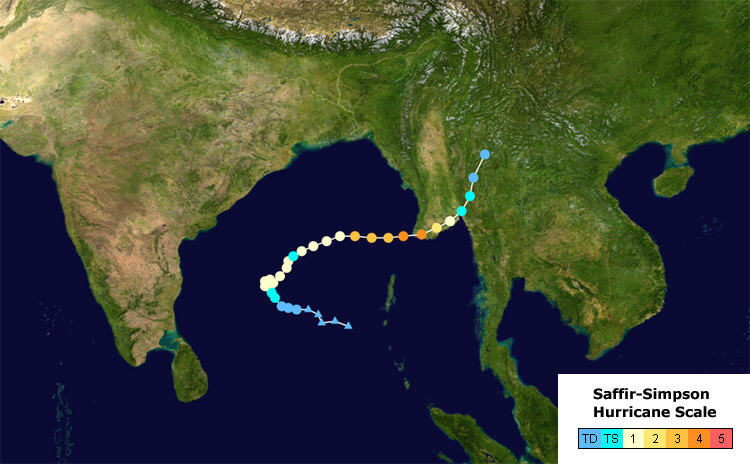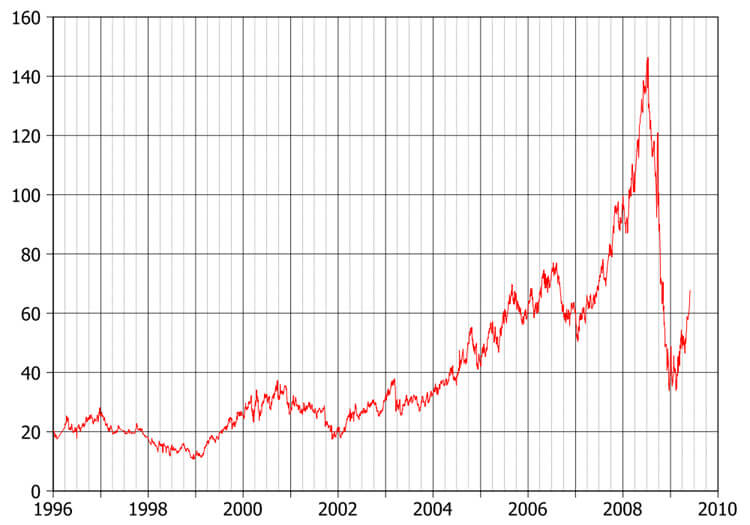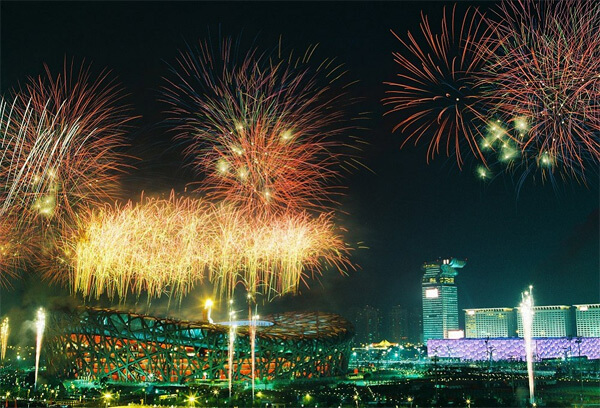
|
|
|
|
|
|
|
2008
Dmitry Medvedev is elected president of Russia
Medvedev took office during the 2008 financial crisis. He immediately set about shifting federal funds to the market sector to stabilise the situation, and also created new legislation concerning the government's control over economic activities. Medvedev's vision of the economy was one focused on technologies and innovation, while reducing the economy's dependence on oil and gas revenues.
Another of his key policies was the fight against corruption, which he worked towards with new laws concerning governmental self-awareness. One of Medvedev's first moves in office was to appoint former president Putin as Prime Minister. Putin's extreme influence and high popularity caused some to speculate about a "tandem rule," with Medvedev and Putin in a duel-headed executive position.
According to a poll conducted in September 2009 by the Levada Center, in which 1,600 people from across Russia took part, 13% believed Medvedev held the most power, 32% Putin and 48% both (7% failed to answer). However, Medvedev affirmed his position of strength, stating, "I am the leader of this state, I am the head of this state, and the division of power is based on this."

Credit: www.kremlin.ru
Cyclone Nargis devastates Burma
Nargis was a strong tropical cyclone that caused the worst natural disaster in Burma's history. After forming in the North Indian Ocean it moved quickly towards the coast. Upon making landfall it caused massive destruction, with peak wind speeds of 135 mph (215 km/h), making it a category 4 on the Saffir–Simpson Scale. It continued inland for over a day before dissipating.
Although international aid was immediately offered, the unstable political conditions made relief efforts difficult. The Burmese military regime initially resisted foreign intervention, and afterwards continued to hamper efforts to import food and medical supplies.
The damage done was estimated at over $10 billion. The official death toll was set at 138,366, but the actual number could have been much higher, the government likely having minimised it to reduce political fallout. Whatever the actual number, Cyclone Nargis was among the deadliest natural disasters in human history.

Oil prices hit a record high
In July 2008, oil prices rose to a record high of $147 a barrel following concern over recent Iranian missile tests. However, prices declined to just $33 a barrel in December, less than a quarter of the peak price reached four months earlier. A strong contributor to this decline was the drop in demand for oil in the USA, as well as the global equities slide.

The Internet continues to boom
Despite the ongoing financial crisis, the Internet continued to grow at a phenomenal pace. By 2008, Google had processed over 1,000,000,000,000 (one trillion) unique URLs, whilst the number of individual web pages was growing by several billion per day and the number of individual users had reached 1.5 billion.
The Internet could now be accessed virtually anywhere, by numerous means. Mobile phones, smartphones, datacards, laptops, handheld games consoles and cellular routers allowed users to connect to the Internet from anywhere that had a cellular network supporting that device's technology. Broadband was becoming ubiquitous.
Recent trends included the rise of social networking sites (such as Facebook), social bookmarking (such as Digg) and a huge increase in blogging, micro-blogging, wiki sites, music downloads, video sharing and podcasts.
Online gaming was now becoming immensely popular. It was no longer a niche market, but very much part of mainstream entertainment – with some games generating more revenue than blockbuster movies. Users could participate in highly realistic battle simulations (such as the Call of Duty series), racing games, or MMORPGs (Massively Multiplayer Online Role Playing Games) such as World of Warcraft; or they could explore and interact with entire virtual worlds (as in Second Life) and engage in the trading of virtual goods and services.
Many traditional high street retailers – especially those dealing in purely digital products such as games, DVDs or music CDs – were now finding themselves increasingly outmoded by online retailers who offered greater speed, convenience and cost savings.

Scientists extract images directly from the brain
In a major scientific breakthrough, a Japanese company developed a way of analysing electrical signals sent from the visual cortex and converting them to digital images on screen. In one of the experiments, test subjects were shown the six letters in the word "neuron". The computer successfully reconstructed the word on screen by measuring their brain activity.*

Breakthrough in facial CGI
In 2008, new modelling technology was pioneered by California-based Image Metrics, enabling the most minute details of facial expressions to be captured and recreated. Overcoming a barrier known as the 'uncanny valley' – the perception that animation looks less realistic as it approaches human likeness – could now be seen as a realistic possibility. An example of this technology is demonstrated in the video below, which shows an entirely computer-generated woman called "Emily". With further advances, the line between what appears real and what is merely rendered will blur completely by 2020.*
Beijing hosts the Olympic Games
The 2008 Summer Olympics were held in Beijing and featured a spectacular opening ceremony. The choice of China as a host country was the subject of criticism by some politicians and non-governmental organisations, however, concerned about China's human rights record. China and others, meanwhile, warned against politicising the Games. At the closing ceremony, IOC president Jacques Rogge declared them a "truly exceptional Games", after earlier asserting that the IOC had "absolutely no regrets" in choosing Beijing as host. China won the most gold medals with 51, followed by the U.S. with 36. However, the U.S. won the most medals overall, with 110 compared to China's 100.

Credit: 东林 (CC BY 2.5 CN)
« 2007 |
⇡ Back to top ⇡ |
2009 » |
If you enjoy our content, please consider sharing it:
References
1 Scientists extract images directly from the brain, Pink Tentacle:
http://www.pinktentacle.com/2008/12/scientists-extract-images-directly-from-brain
Accessed 12th Dec 2008.
2 See 2020.
![[+]](https://www.futuretimeline.net/images/buttons/expand-symbol.gif)






